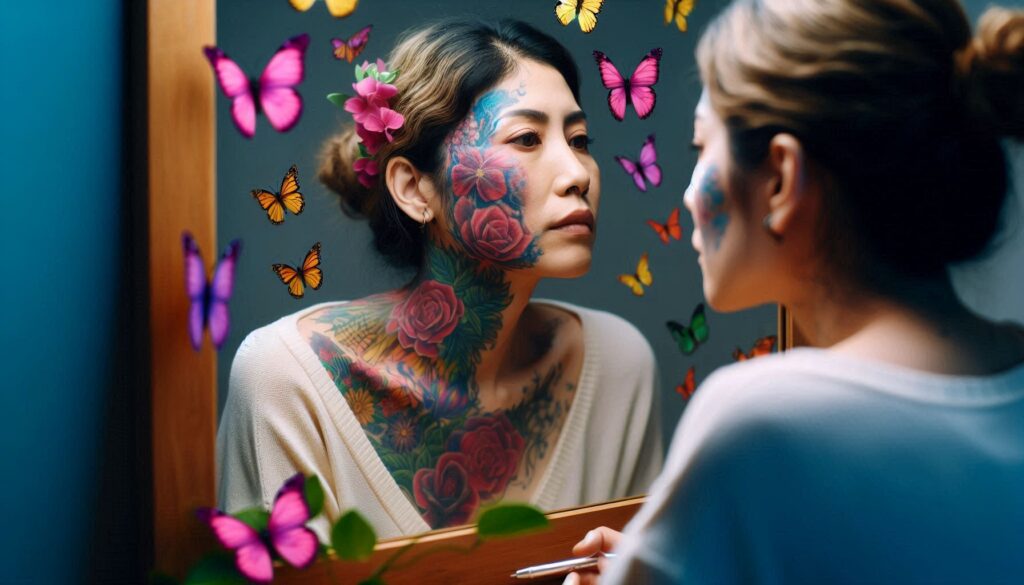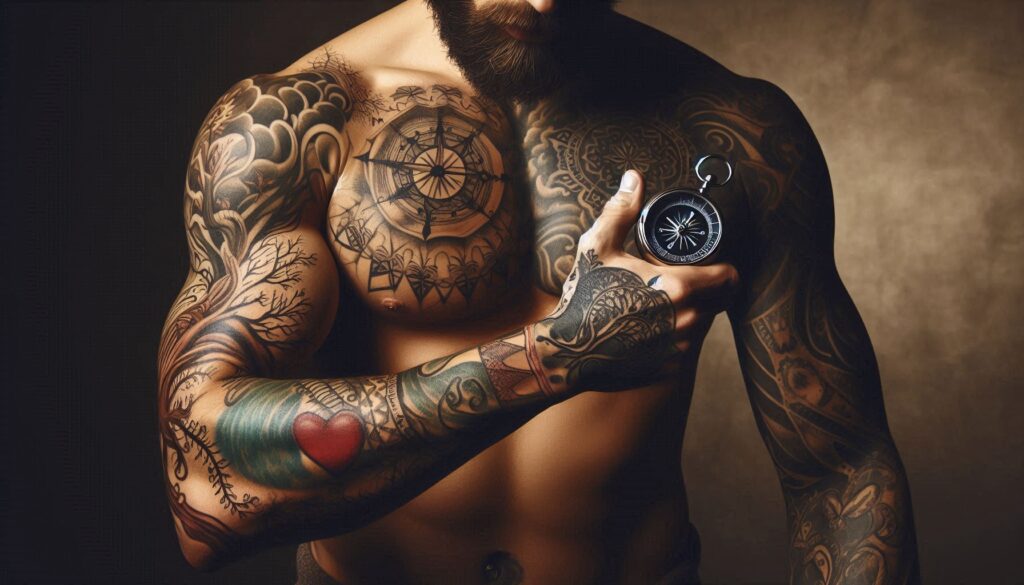Tattoo Regret: Stories and Lessons from Australians
Tattoos have long been a symbol of personal expression, milestones, or even rebellion, but for many, they also come with a mixed bag of emotions over time. What once seemed like a perfect representation of who you were can, years down the line, feel outdated, embarrassing, or simply not “you” anymore. In Australia, where the tattoo culture is as diverse as the people themselves, tattoo regret is a real, albeit often humorous, part of the journey. Whether it’s a misspelled phrase, a drunken decision, or a faded piece that no longer fits with a person’s lifestyle, tattoo regret is surprisingly common. But behind every regret is a lesson, and often, a good story.

The Story Behind Tattoo Regret
Tattoo regret doesn’t usually happen overnight. It’s something that slowly creeps up on people as their lives, tastes, and personalities evolve. Take, for instance, one of the most classic tales of regret: the impulsive tattoo. Picture this—it’s the heat of a summer night in Sydney, and a group of friends are having the time of their lives. Fueled by the excitement of the night and a bit too much to drink, someone in the group suggests getting a matching tattoo. Next thing you know, you’re walking into a studio and walking out with an anchor on your ankle, a Chinese symbol on your wrist, or worse, the name of someone you broke up with six months later. It happens more than you’d think.
What seemed like an awesome idea at the time quickly turns into a painful reminder of impulsive decision-making. Australians, known for their laid-back attitude, are no strangers to living in the moment, but sometimes that “moment” ends up etched on their skin for much longer than they intended.
While many of these regretted tattoos might seem silly or trivial, they represent a larger issue—how permanent decisions can clash with the impermanence of life. People change, grow, and evolve, and sometimes the ink they carry no longer matches who they’ve become.
Personal Tales of Tattoo Regret
Some of the best stories of tattoo regret come from those who look back with a smile, accepting their tattoos as part of their personal history. Take, for instance, Aaron, a 35-year-old from Melbourne, who got his first tattoo at the age of 19. It was a tribal armband, a design that was all the rage in the late ’90s and early 2000s. At the time, Aaron thought it made him look tough and cool, the perfect match for his surf-loving lifestyle. Fast forward fifteen years, and Aaron’s armband has faded, both in color and in meaning. Now, he finds himself covering it up when he’s at work or out with friends.
“I was really into the whole tribal tattoo scene back then,” Aaron laughs. “But now, it just feels outdated. It’s like a reminder of a phase that I’ve outgrown.”
Aaron’s story is one that countless Australians can relate to—tattoos that capture a moment in time but fail to stand the test of time. Yet, rather than removing it, Aaron has chosen to leave the tattoo as a reminder of his younger self, accepting it as part of his journey.

On the other side of the spectrum is Jess, a 28-year-old from Brisbane, who has no fond memories of her regrettable ink. Jess was just 21 when she got her ex-boyfriend’s name tattooed on her collarbone in a swirling script. “It was his idea,” she says, shaking her head. “He convinced me it was a sign of love, but we broke up six months later. Now, I’m stuck with his name on my skin, and I’m not even sure what I was thinking.”
Jess’s story is all too familiar—a romantic gesture turned regret. For people like Jess, tattoo regret isn’t just a reminder of a bad decision, but also a symbol of a failed relationship or a period in life that they’d rather forget. Tattoo studios across Australia frequently encounter clients like Jess, seeking cover-ups or laser removal to erase these painful memories.
The Role of Changing Tastes and Trends
While relationships can be a source of tattoo regret, one of the most common reasons people fall out of love with their tattoos is simply because tastes change. What once seemed trendy or cool can quickly fall out of fashion, leaving people stuck with a permanent reminder of a fleeting trend.
Australia’s tattoo culture is as vibrant and eclectic as the country itself. From bold tribal designs to intricate mandalas, there’s no shortage of styles to choose from. But trends shift, and tattoos that once felt cutting-edge can start to feel dated. The tribal armbands of the late ‘90s, infinity symbols, feathers, and minimalist lines—these designs have all had their moments in the sun, only to be replaced by the next big thing.
For many Australians, this evolution of trends can be both frustrating and enlightening. Tom, a 40-year-old from Sydney, recalls getting a barcode tattoo on the back of his neck when he was 23. “I thought it was so cool back then,” he admits. “It felt futuristic, like I was part of some underground culture.” Now, Tom says, the tattoo feels irrelevant. “It’s just a random barcode, and I get asked all the time if it actually scans. It doesn’t.”
The barcode tattoo, once symbolic of rebellion against conformity, is now something Tom finds himself constantly explaining away. While he’s considered getting it removed, part of him feels that it’s a funny reminder of his youthful idealism. For Tom and many others, these regrettable tattoos are more than just art—they’re windows into who they once were.
Tattoos as Life Lessons
Regret doesn’t always have to be a bad thing. For many Australians, their regrettable tattoos have served as important life lessons. They represent moments of impulsiveness, youthful exuberance, or misguided passion, but they also teach patience, acceptance, and self-awareness.
Take the story of Lisa, a 34-year-old teacher from Perth, who got a quote tattooed on her back when she was 22. The quote, “Live, Laugh, Love,” was meant to be a reminder to live life fully, but over the years, Lisa has come to feel differently about the message. “I don’t even like the quote anymore,” she laughs. “It feels so cliché now. But I think that’s part of the journey—realizing that not everything you love at 22 is going to resonate at 34.”
Lisa’s tattoo regret is less about hating the tattoo and more about outgrowing it. She’s considered having it removed, but she’s also embraced it as a symbol of her personal growth. “It’s a reminder that life isn’t about perfection. Sometimes you make decisions that don’t turn out the way you expected, and that’s okay.”
For many Australians, tattoos are a way of marking important milestones—birthdays, anniversaries, the birth of a child, or the loss of a loved one. But as time goes on, these once-important symbols can lose their meaning, leaving people with tattoos that no longer carry the weight they once did. Still, these tattoos serve as life lessons, teaching the importance of foresight, reflection, and growth.
The Rise of Cover-Ups and Tattoo Removal in Australia
In recent years, the rise of advanced tattoo removal techniques and the popularity of cover-up tattoos have given Australians new ways to deal with tattoo regret. Gone are the days when a regrettable tattoo was a permanent fixture. Laser removal technology has advanced significantly, making it easier, less painful, and more effective to remove unwanted tattoos.

Tattoo studios across Australia, like Tattoos Down Under, have become increasingly adept at offering cover-up options, where new designs are carefully crafted to cover over older, unwanted ink. Whether it’s a completely new piece or a reworking of an old design, cover-ups allow people to transform their regrets into something they can be proud of.
Consider the story of Claire, a 30-year-old from Adelaide, who got a poorly drawn butterfly on her lower back when she was 18. “It was one of those classic ‘tramp stamp’ tattoos,” she admits. “I thought it was cute back then, but as I got older, I realized how tacky it looked.” Claire eventually went to Tattoos Down Under for a consultation and ended up with a beautiful floral design that incorporated the original tattoo while elevating it into something much more sophisticated. “Now, instead of feeling embarrassed, I actually love my tattoo,” she says.
Lessons Learned: Thinking Before Inking
Tattoo regret is a real thing, and it’s more common than you might think. Whether it’s a misspelled word, an impulsive decision, or a design that just hasn’t aged well, tattoos can sometimes feel like more of a burden than a badge of honor. But with the rise of cover-ups, removals, and the acceptance of regret as part of life, Australians are finding new ways to cope with and even embrace their tattoo mishaps.
The key lesson here? Think before you ink. Tattoo artists across Australia, especially at studios like Tattoos Down Under, emphasize the importance of careful consideration before getting a tattoo. It’s easy to get caught up in the excitement of the moment, but tattoos are permanent, and it’s worth taking the time to make sure that the design, placement, and meaning are aligned with who you are—not just today, but years from now.
That being said, if you do end up regretting a tattoo, know that you’re not alone. From cover-ups to removals, there are plenty of options to turn your tattoo regret into a new chapter in your story. And if you need expert advice or a consultation, Tattoos Down Under is a great place to start. Their skilled artists are experienced in helping clients navigate the tricky waters of tattoo regret, offering personalized solutions that leave people feeling confident and satisfied with their ink—whether it’s their first tattoo or a much-needed correction to an old one.
In the end, tattoo regret is a part of life for many Australians, but it doesn’t have to be a permanent one. With the right support and a little bit of creativity, even the most regrettable tattoo can be transformed into something meaningful again.


Leave a Reply